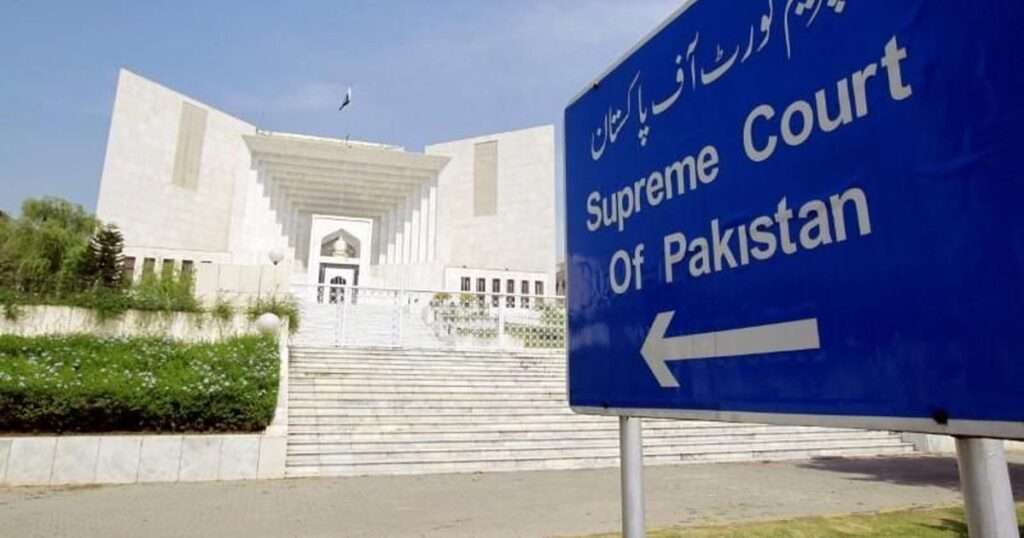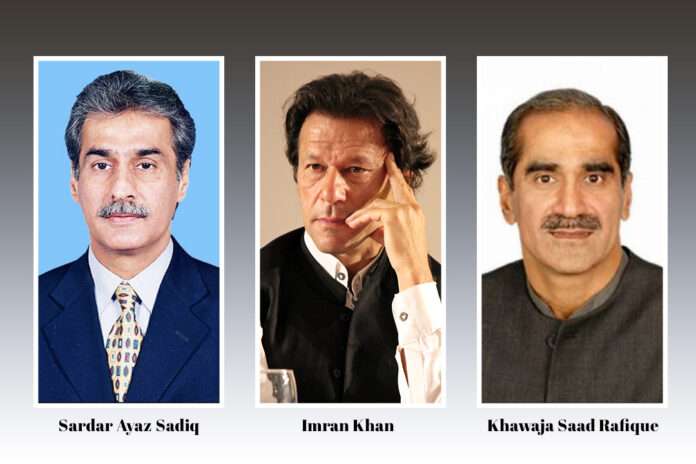On an election petition filed by Pakistan Tehreek-e-Insaf (PTI) alleging poll rigging in NA-125 in Lahore, an election tribunal decided in May this year that the irregularities were serious enough to cancel the constituency’s 2013 election results. Terming it null and void, the tribunal de-seated PML (N)’s Khawaja Saad Rafique, the Federal Minister for Railways. Challenging this decision in the Supreme Court (SC), Saad Rafique petitioned the SC for a “Stay Order” because the election tribunal did not prove that he was involved in rigging. Suspending the tribunal’s verdict for re-elections, the SC instructed the Election Commission of Pakistan (ECP) to restore Saad Rafique’s membership as the MNA for NA-125. On this stay order he not only continues as an MNA but also a Federal Minister.
In line with the August 22 judgement of the Election Tribunal in Lahore, the ECP recently de-seated National Assembly (NA) Speaker Sardar Ayaz Sadiq after nullifying his election from NA-122. Ayaz Sadiq, who had defeated the PTI Chairman Imran Khan, accepted the tribunal’s verdict but said he would challenge this decision in the apex court on various legal grounds. What was really appalling was the manner Pervez Rashid, Rana Sanaullah and other PML (N) stalwarts went after Justice (Retd) Kazim Ali Malik personally. What a democracy where a supposedly elected govt cannot tolerate a judicial verdict without resorting to character assassination of the worst kind. Why cannot the ECP protect the sanctity of their Election Tribunals by taking action against this scandalous defamation?
As in the case of Saad Rafique, the primary focus on the tribunal’s verdict was the glaring irregularities because of the incompetence and inefficiencies of the polling staff, during and after the electoral process. Unfortunately the same holds good to a higher or lower extent in almost every constituency in the country. For the record, other than NA 125 Khawaja Saad Rafique (Minister) and NA122 Sardar Ayaz Sadiq (Speaker), the SC has also been pleased to give stay orders to NA 110 Khawaja Asif (Minister), NA 57 Attock Sheikh Aftab (Minister), NA 58 Attock Malik Intikhab, NA 118 Malik Riaz and NA 154 Sadique Khan. The ECP has shown an inherent in capacity of being able to hold general elections in a truly fair and free manner. While the PML-N being part of any deliberate manipulation was not conclusive, the Judicial Commission (JC) gave a “Sab Accha” Report in the face of a host of glaring irregularities recorded by it.
Heading the NA-122 Election Tribunal Justice (Retd) Kazim said in his detailed decision, “No evidence though is available on record that the returned candidate or any other candidate was responsible for the missing record or even for invalid statements of count.…….. But what is apparent, it reflects manifestly clear that serious lapses and negligence was evident at every stage of conduct of elections”. His judgement recorded that many of the complaints and objections that cropped up might well have been avoided with better planning, better professionalism and better devotion to duty. Re-polling was ordered on the clearly drawn conclusion that the election was materially affected. The PML (N) should be more than willing to contest a by-election; its popularity not being in doubt given the results of the recently held Cantt local bodies elections. In the Rawalpindi Cantonment and Chaklala Cantonment Board Local Bodies polls, PML-N candidates made a clean sweep winning in all 20 wards. Retaining massive popularity in the Province, the PML (N) should not have resorted to the higher courts for obtaining stay orders but should have showed its strength by going for re-elections.
Stay orders by courts are meant to give temporary relief to either party, this is followed by detailed proceedings where guilt or innocence is established. The spirit behind the issue of stay orders is excellent but the system is being manipulated to provide relief to only a handful. This safeguards the interests of the innocent party; this is not the case in majority of the instances because the SC workload of the forces in a delay in dispensing justice. The liberal recourse for stay orders is systematically and cynically being exploited by the guilty, at times for an unjustified end. Restraining the misuse of these laws falls squarely not only upon the govt’s shoulders but on the higher courts who must formulate a mechanism to ensure such abuse of laws does not take place. Such mechanism must also have provision of punishment for those who misuse these laws to shield themselves.

What is worrying is the tendency to turn to our higher courts in this manner by whosoever is frustrated, what then becomes the rationale for a democratic dispensation? After all, democracy is meant to empower the ordinary citizens and promote as well as protect individual freedoms, not be misused for the interests of a handful of people. If election tribunals continue to declare elections in each constituency irregular without pinning the blame on any party, the entire electoral process will be seen to be a farce. Given the fact that judgment by the SC is not expected anytime soon because of the SC workload, decisions made by the Election Tribunals challenged in every case makes the whole rationale behind setting up the Election Tribunals to reinforce the process of democratic dispensation null and void.
Though the situation is far better than a year ago, Pakistan is struggling to strengthen its democratic governance. Terrorism, domestic insurgencies, sectarian and communal violence have taken a huge toll on the morale and the economy of the country. Our external challenges remain two-fold i.e. our relations with India and Afghanistan, which have continued to pose enduring security dilemmas for Pakistan. As for the domestic front, it is an irony that despite both major political parties being quite moderate, they have failed to modernize, industrialize, educate, or develop Pakistan’s society over decades. Our principal challenge lies in the revival of its economy but the crisis of corruption has become endemic. With its nexus with organized crime and terrorism, the process of democracy is being hurt badly. India takes advantage of the situation that our politicians have created, and does not miss an opportunity to pressurize us, internally or externally.
With the politics of stay orders being played out so liberally, can we be faulted for believing that we live in a stay order style of democracy? There is considerable frustration at out the lack of governance, how long before the mounting frustration because of the lack of speedy justice in the electoral process forces (pun intended) a “stay order” on democracy?




